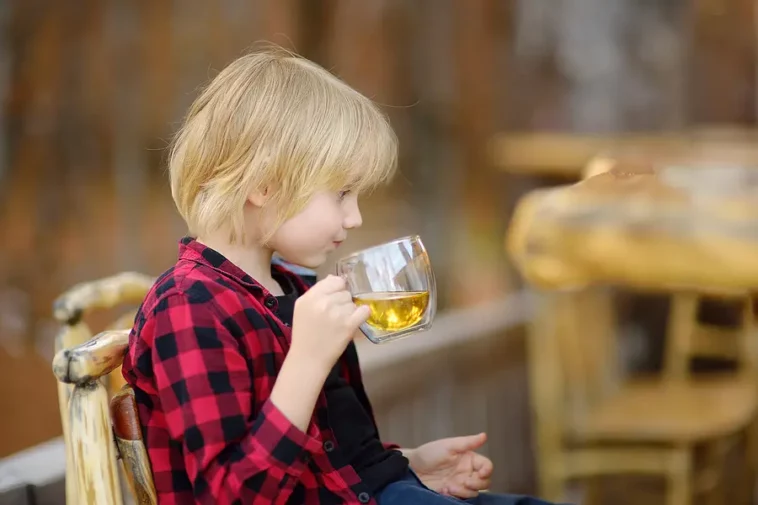In today's fast-paced world, children often face stress and anxiety, just like adults. More parents are turning to natural remedies to help their kids find calm and relaxation without using pharmaceutical drugs.
One approach gaining popularity is the use of herbal medicine for children. Herbs offer gentle and non-addictive solutions to help ease anxiety and promote a sense of tranquility. In this guide, we'll explore the top 10 calming herbs for children, their benefits, and frequently asked questions about their usage.
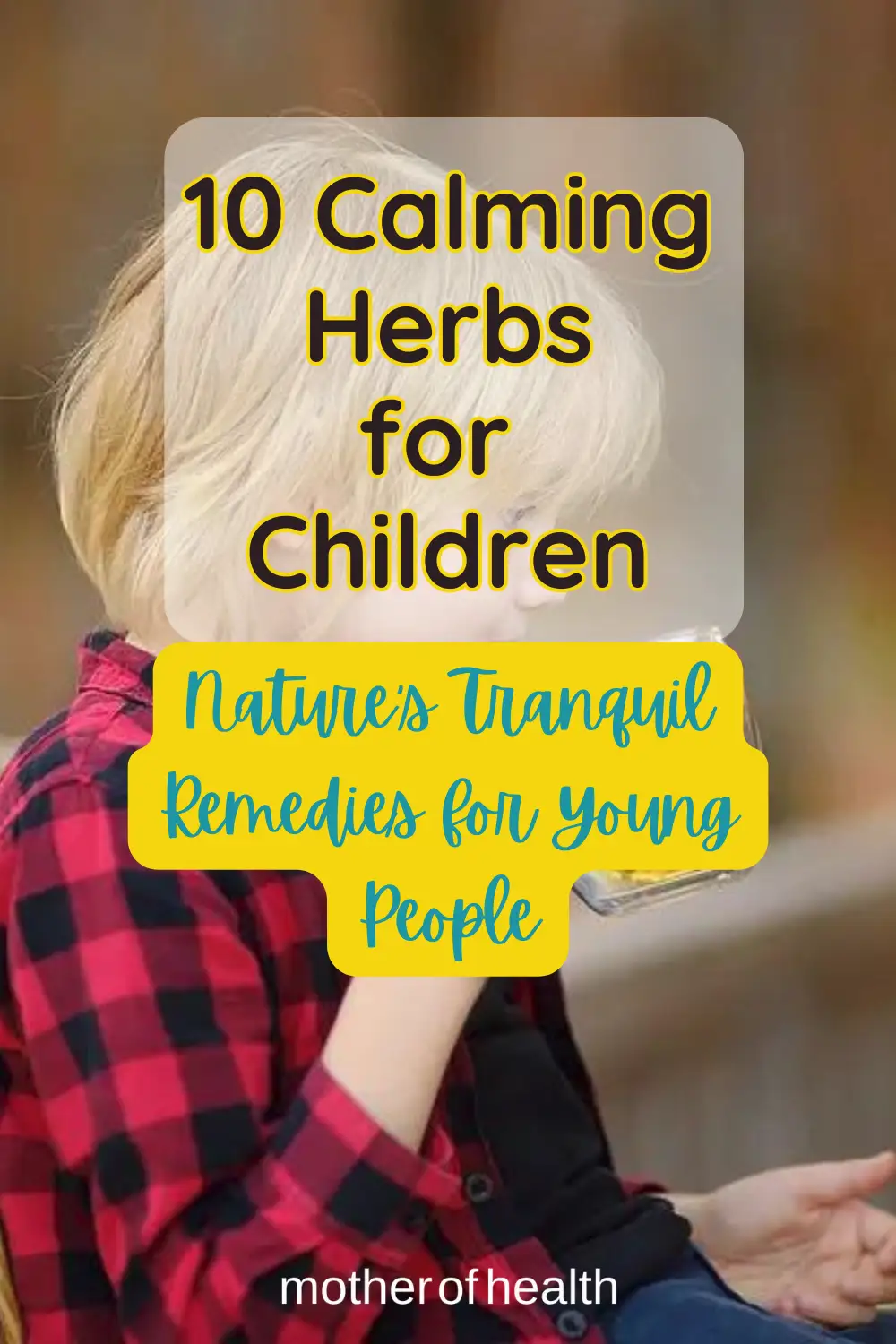
Understanding Childhood Anxiety
Before delving into the world of calming herbs, it's essential to understand childhood anxiety and its impact.
According to the CDC, mental health issues like anxiety problems, attention deficit hyperactivity disorder (ADHD), and depression are the most common mental disorders in children.
Anxiety or a stress response in children can manifest in various ways, including:
- Excessive worrying
- Behavioral problems
- Restlessness
- Trouble sleeping, and even physical symptoms like stomachaches
Behavioral issues can happen to anyone, no matter their age. They can stem from emotional factors like lack of connection with parents or discipline, or even from dietary factors like too much sugar.
Environmental factors can also play a role, like heavy metal exposure or noise pollution. It's not uncommon for ADHD and anxiety to occur simultaneously, leading to a complex array of symptoms.
Identifying and addressing these signs is crucial for a child's well-being and development.
Benefits of Using Calming Herbs for Kids
Herbal medicine offers several advantages when it comes to managing childhood anxiety. Calming herbs provide a natural and gentle alternative to pharmaceutical options, which can come with unwanted side effects.
Let's dive deeper into the benefits of each of the top 10 calming herbs for children:
10 Calming Herbs for Children
1. Chamomile: The Gentle Soother
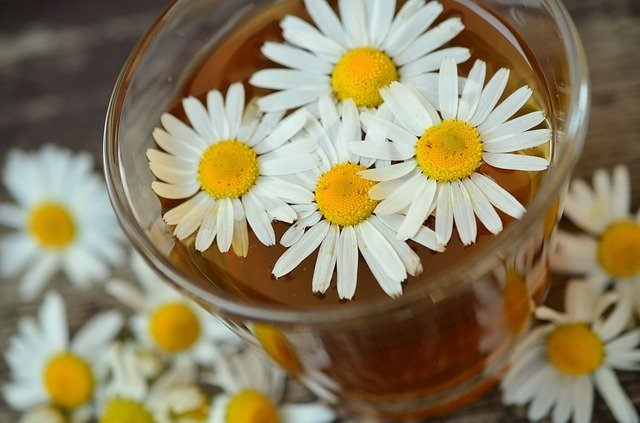
Chamomile, one of the best-known and widely used herbal remedies, offers soothing properties and stands out as the preferred choice for very young children.
Most of the conditions that Chamomile can address fall within the realm of relaxation. Throughout history, people have employed chamomile to calm restless children, ease upset stomachs, and provide relief for itchy skin.
Children typically receive Chamomile through tea or tincture, as its mild, pleasant taste is usually well-received. To create an infusion, simply pour a cup of boiling water over 2 teaspoons of dried Chamomile leaves and let it steep for 5-10 minutes.
Frequently Asked Question: Is it safe to use chamomile if my child has allergies?
Chamomile is generally considered safe. However, if your child is allergic to plants in the Asteraceae family (which includes ragweed and marigolds), it's advisable to consult a healthcare provider before introducing chamomile.
2. Lavender: A Fragrant Path to Calm
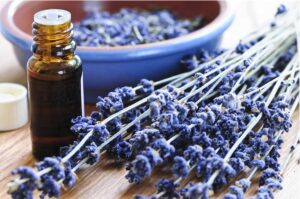
Lavender, a gentle and widely recognized calming herb, offers benefits to young people dealing with anxiety, sleep difficulties, or restlessness. Research indicates that its soothing aroma aids in stress reduction and the promotion of relaxation.
Numerous studies have demonstrated that lavender's scent has the potential to enhance sleep quality, boost concentration, and reduce anxiety levels.
Lavender can be administered to children in various child-friendly ways, such as utilizing lavender essential oil diffusers for aromatherapy. Another approach is to add a few drops to a warm bath before bedtime or employ lavender-scented stuffed animals or pillows.
Given that individual responses may differ, it is crucial to verify that your child does not have sensitivities or allergies to lavender.
Lavender's reputation for its calming aroma is well-established. It is frequently used in aromatherapy to alleviate stress and anxiety. Incorporating a few drops of lavender essential oil into a warm bath or using a lavender-scented pillow can assist children in unwinding and achieving better sleep. Sufficient sleep is pivotal for maintaining attention span and a positive mindset.
Frequently Asked Question: Is it safe to apply lavender oil directly to my child's skin?
Lavender essential oil should undergo dilution before direct application to the skin, particularly for children. Consult with an aromatherapist or healthcare provider to determine the appropriate dilution ratios.
3. Passionflower: Nature's Stress Buster
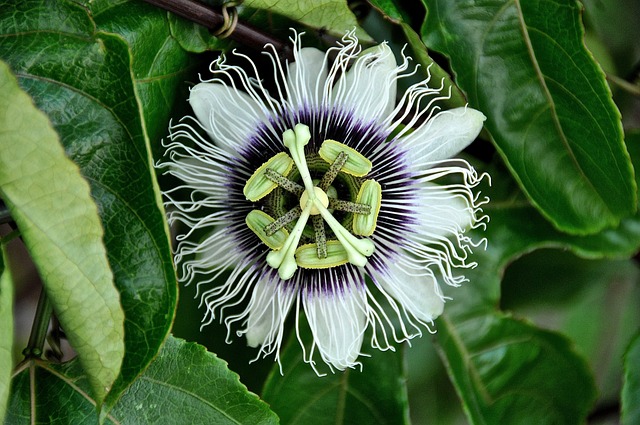
Passionflower exerts a calming influence on the nervous system, rendering it a valuable tool for mitigating anxiety in children. This natural remedy proves highly effective for kids contending with anxiety, depression, or sleep deprivation.
Notably, it comes to the aid of those who struggle to quiet their minds when the stress hormone cortisol overwhelms them. Furthermore, it is a safe option for children and teenagers grappling with stress-induced headaches, hyperactivity, restlessness, or an accelerated heartbeat. Adolescents can also experience its benefits.
To harness Passion Flower's calming virtues for children or teens, you can prepare tea using it.
Brew 1-4 cups in the morning and sip it throughout the day. It harmonizes well with other soothing herbs like Chamomile, Lemon Balm, and Milky Oats, and can be sweetened naturally with honey. Be sure to include a cup before bedtime for optimal results.
Passionflower is available in various forms, encompassing tinctures, teas, and supplements.
To craft a tea infusion, pour a cup of boiling water over 1 teaspoon of the dried herb and let it steep for 15 minutes. Enjoy a cup before bedtime.
4. Lemon Balm: Sweet Serenity for Kids

Another gentle and fragrant herb known for its anxiety-reducing properties is Lemon Balm, regarded as a tonic for the nervous system capable of promoting relaxation in both mind and body.
Clinical studies have unveiled Lemon Balm's capacity to enhance cognitive function while addressing issues like concentration difficulties, impulsiveness, and nervousness.
Lemon balm tea stands out as a popular choice, appreciated for its mild, lemony flavor, which typically appeals to children and teenagers. This herbal remedy is also available as a liquid extract.
To enhance concentration, a cup of lemon balm tea prior to study or homework sessions may prove beneficial. Furthermore, a small dose of lemon balm extracts or tincture, when diluted in water, can contribute to improved sleep quality when consumed before bedtime.
Frequently Asked Question: Is it safe to use lemon balm daily for children?
Lemon balm is generally considered safe for daily use. However, it is advisable to incorporate occasional breaks to evaluate its effectiveness for your child.
5. Valerian Root: Tranquil Dreams for Kids
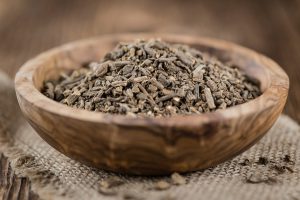
Valerian, another widely recognized herb celebrated for its calming attributes, can potentially provide relief to children grappling with anxiety, sleep issues, or restlessness.
Although research on its precise impact on children is somewhat limited, the prevailing belief is that Valerian operates by fostering relaxation and diminishing nervous tension.
Typically, Valerian is available in the form of tinctures, capsules, or gummies.
It is crucial to exercise caution when determining the dosage, considering a child's age and weight.
For safe and precise guidance on appropriate dosing, it is advisable to consult with a healthcare professional or Naturopathic doctor. Valerian's sedative properties should be carefully considered in a pediatric context.
6. Hops: The Herbal Lullaby
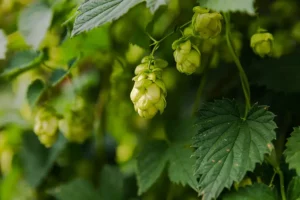
Hops, often associated with its role in brewing beer, surprisingly offers relaxation benefits that can be advantageous for children dealing with attention issues, hyperactivity, restlessness, and sleep disturbances.
Incorporating hops into bedtime routines can be particularly advantageous for children encountering sleep challenges, and it has even been known to mitigate nightmares.
While Hops are not as commonly utilized in pediatric herbal remedies as in adult contexts, their gentle sedative qualities can potentially instill a sense of tranquility and enhance sleep quality.
To administer Hops to children, it can be prepared as a mild tea or employed in combination with other calming herbs in the form of a tincture.
Hops are also available in tincture or capsule form, offering versatile options for effective use.
7. Catnip: Surprising Calm for Kids
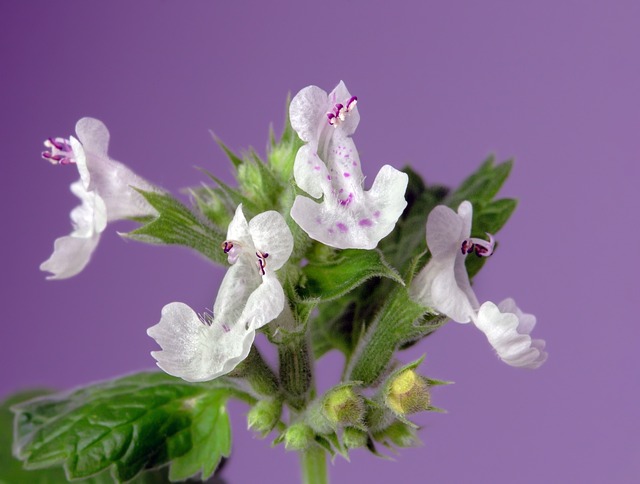
Catnip, often recognized for its playful effects on felines, surprisingly extends its soothing qualities to children as an herbal remedy.
While there may be limited scientific studies specifically focused on its effectiveness for kids, catnip boasts a rich history of employment as a mild sedative and relaxant in the realm of herbal medicine.
Anecdotal evidence suggests that catnip holds the potential to alleviate nervousness, restlessness, and mild digestive discomfort in children. Additionally, it aids in managing restlessness and colic, promoting relaxation in the body.
Catnip can be administered through various methods, including catnip tea, syrup or infusion in warm milk, prepared by steeping dried catnip leaves in hot water.
When giving catnip to children, it is crucial to ensure its highly diluted form to guarantee their safety.
Frequently Asked Question: Is catnip safe for all children, and are there any contraindications?
While catnip is generally considered safe, it may not be suitable for children with specific medical conditions. Consult with a healthcare provider before use, especially for children with epilepsy, to ascertain its appropriateness and safety.
8. St. John's Wort: Sunshine for the Soul
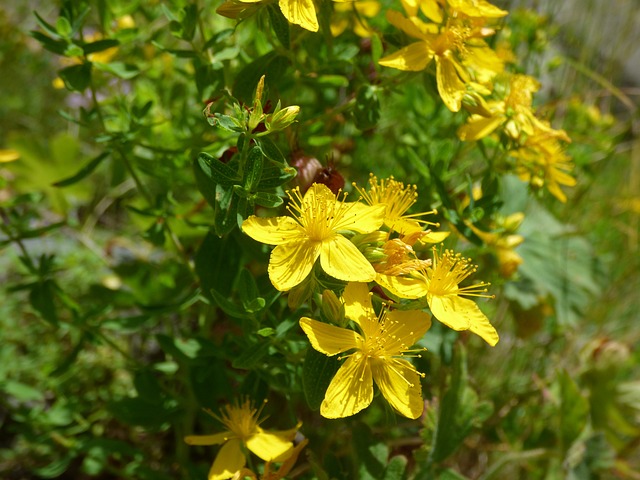
This natural remedy has gained recognition for its potential use as a calming herbal medicine and mood booster for school-aged children and teenagers. St. John's Wort alleviates symptoms of anxiety, stress, and occasional mood swings that are common for young people.
While it is important to consult with a healthcare professional before introducing any herbal supplements, St. John's Wort can be administered in the form of gummies, standardized extracts, or tinctures. Typically, for children and teens, a lower dosage is recommended, and it should be supervised by parents or caregivers.
9. Oat Straw: Nourishing Calm for Children
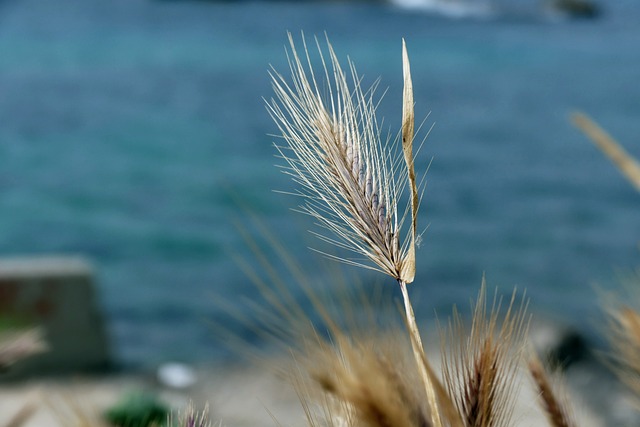
Oat straw, harvested from the green tops of oat plants, emerges as a gentle and nourishing herb that can exert a calming influence on children.
Although there may not be an abundance of scientific studies exclusively dedicated to its use in children, Oat straw enjoys a longstanding tradition in herbal medicine for its potential to bolster the nervous system and facilitate relaxation.
Typically, it is prepared in the form of an Oatstraw infusion, where Oatstraw is steeped in hot water. Abundant in essential nutrients, including B vitamins and minerals like magnesium, Oat straw can play a role in diminishing stress, anxiety, and depression.
It can be seamlessly integrated into a child's regimen as a tea, herbal infusion, or added to bathwater to promote relaxation. With its nutrient-rich composition, Oat straw holds promise as a valuable addition to a child's wellness routine.
Frequently Asked Question: Is oat straw safe for children with gluten sensitivities?
Oat straw is generally gluten-free, although cross-contamination may transpire during processing. Therefore, it is advisable to seek out certified gluten-free oat straw products for children with gluten sensitivities, ensuring their safety and well-being.
10. Ashwagandha: Ancient Calm for Modern Kids
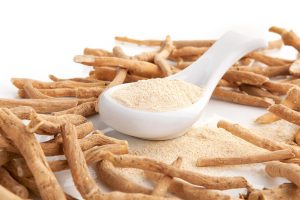
Ashwagandha is an adaptogenic herb widely used in Ayurveda. Adaptogenic herbs enhance the body's capacity to adapt to and withstand stress, offering benefits such as improved memory and mental clarity, heightened energy levels, and the promotion of restful, deep sleep.
It has traditionally been used to pacify a restless child, settle an upset stomach, and soothe itchy skin.
Additionally, Ashwagandha is known for its remarkable stress-reducing properties, as it effectively decreases the stress hormone Cortisol.
It's crucial to ensure that Ashwagandha is administered in a child-friendly form, such as a mild tea or a suitable supplement, and an incorrect, age-appropriate dose, as determined by a qualified healthcare provider.
The Role of Magnesium and Anxiety

Magnesium deficiency has been associated with an increased risk of anxiety-related symptoms. It plays a crucial role in regulating neurotransmitters and brain function, including the production of serotonin, a neurotransmitter that contributes to mood stabilization.
When magnesium levels are low, it can disrupt this balance, leading to feelings of anxiety, restlessness, and even panic attacks.
Addressing magnesium intake through a balanced diet rich in magnesium-containing foods, such as leafy greens, nuts, and whole grains, along with supplementation can also be a preventative measure to support emotional well-being in most children.
Frequently Asked Questions (FAQs)
Q1: Are herbal remedies completely safe for my child?
Herbal remedies and natural supplements can be safe for children when used appropriately and in moderation. However, it's crucial to consult with a healthcare provider before introducing any herbal remedy, especially if your child has underlying health conditions or is taking other herbs or medications.
Q2: What are the potential side effects of using these herbs?
While most herbal supplements have few side effects, some children may experience mild allergic reactions or digestive discomfort. It's essential to monitor your child's response to any herbal remedy and discontinue use if adverse reactions occur.
Q3: How can I determine the right dosage for my child?
The appropriate dosage of calming herbs for children varies based on factors such as age, weight, and the specific herb being used. Always follow dosage recommendations provided on the product label or consult a qualified healthcare practitioner for guidance.
Q4: Can I use these herbs alongside other treatments?
Herbal supplements can often complement conventional treatments. More often than not, addressing issues can involve a combination of natural remedies, including behavioral therapy, dietary adjustments, relaxation techniques, and the use of supplements or herbs to enhance the effectiveness of the overall approach.
Q5: Are there any contraindications or situations where I should avoid herbal remedies?
Some herbs may not be suitable for children with specific medical conditions or allergies. It's essential to consult a healthcare provider or herbalist to ensure that the chosen herbs are safe and appropriate for your child's individual needs. Personalized advice takes into account your child's health history and unique circumstances.
Precautions and Consultation
Before incorporating any calming herbs for kids into your child's routine, it's vital to consult a healthcare professional. They can provide personalized guidance, ensure safety, and help you choose the most suitable herbs for your child's unique needs. Healthcare providers can also monitor your child's progress and make adjustments as necessary.
Parents should also exercise caution when introducing new herbs, especially if their child has a history of allergies or sensitivities. Start with a small dose and observe how your child responds. If you notice any adverse reactions, discontinue use immediately and seek medical advice if necessary.
Keep in mind that the effectiveness of calming herbs can vary from child to child. What works well for one child may not have the same effect on another. Patience and careful observation are key when exploring natural remedies.
Before You Go
Pharmaceuticals designed to address mental or behavioral disorders, can pose risks, come with a variety of side effects, and, in some cases, might have unforeseen adverse impacts on your child's physical health and development.
Calming herbs offer a natural and gentle approach to addressing everything from anxiety to moderate depression in children. By understanding the positive impact of various calming herbs, parents can make informed decisions to support their children's emotional well-being naturally.
When considering herbal remedies, always prioritize your child's health and comfort. Consult with healthcare professionals or herbalists who have experience working with children to create a personalized plan that takes into account your child's unique needs and any potential interactions with other treatments.
Incorporating calming herbs into your child's routine can be a valuable addition to their overall wellness strategy. With proper care, attention, and guidance, you can help your child find the calm and balance they need to thrive in today's sometimes stressful world.
Don't forget to follow us on Pinterest. Thank you for your time and reading.
The information presented here is in no way meant to serve as medical advice. It is merely information and opinion. All information, content, and material of this website is for informational purposes only and are not intended to serve as a substitute for the consultation, diagnosis, and/or medical treatment of a qualified physician or health care provider. If you are experiencing symptoms of any kind, please consult with your physician.

